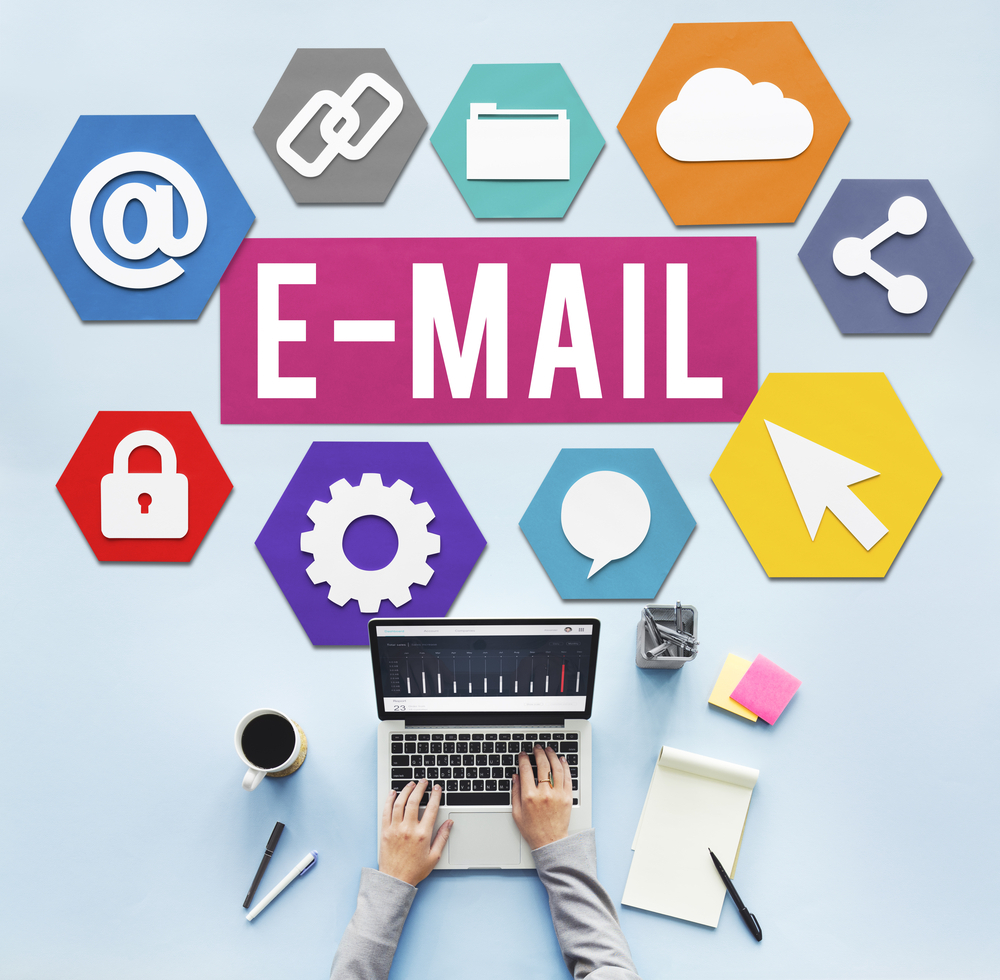
Email marketing is a powerful tool for businesses of all sizes to reach customers and build relationships. It allows you to communicate with your audience directly and personally, promoting your products or services, sharing news and updates, and building trust and loyalty.
However, managing an email marketing campaign can take time and effort, especially with many subscribers. That’s where email marketing tools come in.
These software platforms make it easy to create professional-looking emails, manage your subscriber list, and track the success of your campaigns.
In this article, we will explore the 18 best email marketing tools available today, their features, pricing plans, and pros and cons to help you choose the best fit for your business needs.
Importance of email marketing for businesses

Email marketing is a highly effective way for businesses to reach and engage with their target audience. With email marketing tools, businesses can create personalized and targeted campaigns tailored to their subscribers’ needs and preferences. This can help increase customer loyalty, drive sales, and build brand awareness.
Email marketing tools are essential for businesses that want to stay competitive and grow their customer base through effective communication with their audience. Email marketing tools make it easy for businesses to send professional-looking emails, manage their subscriber lists, and track the success of their campaigns. They also offer automation features that allow businesses to send timely and relevant messages to their subscribers based on their behavior and interests.
Overview of email marketing tools

Email marketing tools are software programs that allow businesses to create, send, and track email campaigns. These tools help businesses reach their target audience and promote their products or services through email.
One of the key benefits of using email marketing tools is that they allow businesses to automate their email campaigns. This means businesses can create a series of emails and set them to be sent automatically to subscribers at specific intervals.
This can save businesses significant time and effort compared to manually sending emails. Another benefit of using email marketing tools is that they allow businesses to track the performance of their email campaigns. Businesses can track open rates, click-through rates, and conversions to see how well their emails perform. This information can then be used to optimize future email campaigns for better results.
Email marketing tools also typically offer features such as email templates, list management, segmentation, and personalization. These features can help businesses create more effective email campaigns tailored to their subscribers’ needs and interests.
Overall, email marketing tools can be valuable for businesses looking to reach their target audience and drive sales through email communication. Businesses can improve their email marketing efforts and achieve better results by automating email campaigns and tracking performance metrics.
1- MailChimp
MailChimp is one of the most popular email marketing tools available today. It offers a range of features that allow businesses to create, send, and track email campaigns. Let’s take a closer look at some of the features of MailChimp.
Features of MailChimp

Email templates
MailChimp offers a range of customizable email templates that businesses can use to create professional-looking emails without any design skills.
List management
MailChimp allows businesses to manage their email lists by segmenting subscribers based on various criteria, such as demographics, interests, and behaviors.
Automation
MailChimp’s automation features allow businesses to create targeted email campaigns triggered by specific actions by subscribers.
A/B testing
MailChimp’s A/B testing feature allows businesses to test different versions of their emails to see which one performs better.
Analytics
MailChimp provides detailed analytics on email campaign performance, including open rates, click-through rates, and conversions.
Pros:
- MailChimp is user-friendly and easy to use, even for beginners
- It offers a wide range of customizable templates and features
- MailChimp provides detailed analytics to help businesses track and improve their email campaign performance.
Cons:
- MailChimp’s pricing plans can be expensive for businesses with large subscriber lists.
- Some advanced features are only available on the more expensive paid plans, which may not be affordable for small businesses.
Final Verdict
MailChimp is a powerful email marketing tool that offers a range of features to help businesses create, send, and track effective email campaigns. While it may not be the cheapest option on the market, its user-friendly interface and detailed analytics make it a popular choice for businesses of all sizes.
2- Constant Contact
Constant Contact is a popular email marketing tool designed to help small businesses create and manage email campaigns. Here are some of the key features of Constant Contact:
Features of Constant Contact
Email templates
Constant Contact offers a vast library of customizable email templates businesses can use to create professional-looking emails quickly.
List management
Constant Contact’s list management tools allow businesses to segment their email list based on various criteria, such as demographics, interests, and behaviors.
Automation
Constant Contact’s automation features enable businesses to create targeted email campaigns triggered by specific actions by subscribers.
A/B testing
Constant Contact’s A/B testing feature allows businesses to test different versions of their emails to see which one performs better.
Analytics
Constant Contact provides detailed analytics on email campaign performance, including open rates, click-through rates, and conversions.

Pros
- Constant Contact is user-friendly and easy for businesses of all sizes, especially those with little email marketing experience.
- It offers a range of customizable templates and features to help businesses create professional-looking emails quickly.
- Constant Contact provides detailed analytics to help businesses track and improve their email campaign performance.
Cons
- Constant Contact’s pricing plans can be expensive for businesses with large subscriber lists.
- Some advanced features like surveys are only available on the more expensive Email Plus plan.
Final Verdict
Constant Contact is a powerful email marketing tool that offers a range of features to help businesses create, send, and track effective email campaigns. The platform is user-friendly and offers customizable templates and detailed analytics. While pricing plans may be expensive for businesses with large subscriber lists, it’s an excellent choice for small to medium-sized businesses looking to improve their email marketing efforts.
3- GetResponse
GetResponse is an all-in-one email marketing tool that helps businesses create and manage email campaigns. Here are some of the key features of GetResponse:
Features of GetResponse
Email templates:
GetResponse provides a library of customizable email templates businesses can use to create professional-looking emails quickly.
List management:
GetResponse’s list management tools allow businesses to segment their email list based on various criteria, such as demographics, interests, and behaviors.
Automation:
GetResponse’s automation features enable businesses to create targeted email campaigns triggered by specific actions taken by subscribers.
Landing pages:
GetResponse offers a drag-and-drop landing page builder that businesses can use to create custom landing pages for their email campaigns.
Analytics:
GetResponse provides detailed analytics on email campaign performance, including open rates, click-through rates, and conversions.

Pros:
GetResponse is an all-in-one email marketing tool that offers a range of features to help businesses create, send, and track effective email campaigns.
It provides a drag-and-drop landing page builder for businesses to create custom landing pages for email campaigns.
GetResponse offers detailed analytics to help businesses track and improve their email campaign performance.
Cons:
The pricing plans can be expensive for businesses with large subscriber lists.
The interface may be difficult for beginners who have never used an email marketing tool.
Final verdict
GetResponse is an excellent email marketing tool that provides a range of features to help businesses create, send, and track effective email campaigns. The platform offers a drag-and-drop landing page builder and detailed analytics, and the pricing plans can be tailored to businesses of all sizes. While the interface may be difficult for beginners, GetResponse is a great choice for businesses looking to improve their email marketing efforts.
4- AWeber
AWeber is an email marketing tool that helps you sends emails to subscribers, create beautiful landing pages and forms, automate marketing campaigns, and more.
It’s a great tool for businesses of all sizes because it offers free and paid plans, so you can try them out before deciding if you want to continue using them.
Pros of AWeber

- Easy-to-use interface
- Comprehensive features
- Automation capabilities
Cons of AWeber
- Customization options.
AWeber’s email templates are great, but there aren’t as many to choose from as you’d find with other tools. You also can’t customize the templates or create your own (though they do offer an HTML editor that lets you add in your own CSS).
- support options.
If something goes wrong with one of your emails and you need help, there are only two ways for AWeber to provide assistance: through their online knowledge base or via phone call–you can’t live chat with them or submit a ticket online like most other providers do these days!
- A/B testing capabilities:
While this isn’t necessarily a con since it depends on what type of business owner you are and how much time/energy/money you want to spend on testing things out before making changes; however if this is something that is important for your business then keep reading because we’ll talk about what else might work better than AWeber later on…
Final Verdict
AWeber is a great email marketing tool that can help you grow your business. When considering it, you should consider the features, pricing plans, pros, and cons.
5- Drip
Drip email marketing is a strategy that helps you nurture your leads and turn them into customers. It’s a process of sending emails to your audience at specific times and in specific ways so that you can maximize the chances of converting them into paying customers.
Drip email campaigns are also known as autoresponders or automated emails because they’re sent automatically based on certain criteria, such as time or behavior (such as opening an email). They’re usually triggered by some action taken by someone who has subscribed to receive them (like signing up for an event).
Features
Email Automation
You can set up drip campaigns triggered by certain events, such as when someone signs up for your newsletter or makes a purchase on your website. You’ll be able to schedule these messages in advance, so they go out at the right time without worrying about manually sending them each time. This way, you will take advantage of all opportunities and keep track of what needs doing next!
Pros of Drip Email Marketing

Drip email marketing offers several benefits.
The first is that it’s easy to use, even for beginners. You can create an email campaign in minutes, and once your drip campaign is set up, you can send out new messages automatically without having to do additional work.
Another great benefit of drip email marketing is its powerful automation capabilities–you can use this tool to target specific groups of people with different messages based on their interests or behavior (for example: “if they open my emails but don’t click through very often” or “if they haven’t opened any emails from me in the past month”). This allows marketers like yourself who don’t have time on their hands an easy way
to reach out while still being able to personalize each message sent out into the world!
Cons of Drip Email Marketing
There are a few downsides to drip email marketing. The first is that you have fewer customization options than with regular email marketing. You can’t add images or links, and you’re limited to text-only emails.
Another downside is that it’s harder to get support from your provider if something goes wrong with your campaign than it would be with regular email marketing services like MailChimp or Aweber (which also offer drip campaigns). This is because the process of creating a drip campaign is more complicated than sending out one or two emails at once; therefore, there are fewer people who know how to troubleshoot them effectively.
Final Verdict
Drip Email Marketing is an effective way to reach and engage with customers. It can be used to increase brand awareness, generate leads, and boost sales.
However, before you start sending out your drip emails, it’s important to consider the pros and cons of this strategy.
6- Campaign Monitor
Campaign Monitor is an email marketing tool that allows businesses to create and send targeted email campaigns that engage and convert audiences. With various features, pricing plans, and pros and cons, it’s an excellent tool for businesses looking to boost their email marketing efforts.
Features of Campaign Monitor
Campaign Monitor offers a range of features that allow businesses to create and customize email campaigns that resonate with their audience. Some of the key features include:
- Drag-and-drop email builder: Create beautiful, responsive emails with an easy-to-use drag-and-drop interface.
- Personalization: Add personalized content to your emails based on the recipient’s behavior, interests, and location.
- Segmentation: Segment your email list based on criteria like location, behavior, and interests to create targeted email campaigns.
- Automation: Create automated email campaigns that are triggered by specific actions, such as signing up for a newsletter or making a purchase.
- Analytics: Track the performance of your email campaigns with detailed analytics and reporting.
Campaign Monitor Pros and Cons

Pros:
- Easy-to-use interface: The drag-and-drop email builder makes it easy to create beautiful, professional-looking emails.
- Personalization: Campaign Monitor’s personalization features allow businesses to create targeted email campaigns that resonate with their audience.
- Automation: Automated email campaigns save businesses time and can help increase conversions.
- Analytics: Detailed analytics and reporting help businesses track the performance of their email campaigns and make data-driven decisions.
Cons:
- Limited integrations: Campaign Monitor has fewer integrations than some of its competitors, which may limit its functionality for some businesses.
- Higher pricing: The pricing for Campaign Monitor is higher than some of its competitors, which may make it less accessible for small businesses.
- Limited design options: While the drag-and-drop interface is easy to use, it may be limiting for businesses that want more design options.
Final Verdict:-
Overall, Campaign Monitor is a powerful email marketing tool offering various features to help businesses create and send targeted email campaigns. While it may have fewer integrations or design options than some competitors, its ease of use and personalization features make it a great choice for businesses looking to up their email marketing game.
7- ActiveCampaign
ActiveCampaign is a marketing tool offering various features to help businesses automate and personalize their marketing efforts. From email marketing to marketing automation, ActiveCampaign has various features that can help businesses improve their marketing strategies.
Features of ActiveCampaign
ActiveCampaign offers a range of features that allow businesses to create and customize marketing campaigns that resonate with their audience. Some of the key features include:
Email Marketing: Create and send targeted email campaigns that engage and convert audiences.
Marketing Automation: Automate your marketing campaigns to save time and increase conversions.
CRM: Manage your customer relationships and track their interactions with your business.
Sales Automation: Automate your sales processes to close more deals.
Messaging: Engage with your audience through personalized messaging across multiple channels.
ActiveCampaign Pros and Cons

Pros:
Marketing Automation: ActiveCampaign’s marketing automation features allow businesses to automate their marketing campaigns and increase conversions.
Personalization: ActiveCampaign’s personalization features allow businesses to create targeted campaigns that resonate with their audience.
CRM: ActiveCampaign’s CRM features allow businesses to manage their customer relationships and track interactions.
Integrations: ActiveCampaign integrates with various third-party tools, making it a versatile marketing tool.
Cons:
Learning Curve: ActiveCampaign can be complex, and learning how to use its features may take time.
Pricing: ActiveCampaign’s pricing is higher than some of its competitors, which may make it less accessible for small businesses.
Limited Design Options: While ActiveCampaign offers some design options, they may be limited for businesses that want more customization.
Final Verdict
Overall, ActiveCampaign is a powerful marketing tool offering various features to help businesses automate and personalize their marketing efforts. While it may have a steeper learning curve and higher pricing than some competitors, its marketing automation and personalization features make it a great choice for businesses looking to improve their marketing strategies.
8- SendinBlue
SendinBlue is an email marketing tool that offers a range of features to help businesses create and send targeted email campaigns that engage and convert audiences.
Features of SendinBlue
SendinBlue offers a variety of features that allow businesses to create and customize email campaigns that resonate with their audience. Some of the key features include:
Email Marketing: Create and send targeted email campaigns that engage and convert audiences.
Marketing Automation: Automate your marketing campaigns to save time and increase conversions.
SMS Marketing: Engage with your audience through personalized SMS messaging.
Chat: Engage with your audience in real time through live chat on your website.
CRM: Manage your customer relationships and track their interactions with your business.
SendinBlue Pros and Cons

Pros:
Email Marketing: SendinBlue’s email marketing features allow businesses to create and send targeted email campaigns that engage and convert audiences.
Marketing Automation: SendinBlue’s marketing automation features allow businesses to automate their marketing campaigns and increase conversions.
SMS Marketing: SendinBlue’s SMS marketing features allow businesses to engage with their audience through personalized SMS messaging.
CRM: SendinBlue’s CRM features allow businesses to manage their customer relationships and track interactions.
Cons:
Limited integrations: SendinBlue has fewer integrations than some of its competitors, which may limit its functionality for some businesses.
Limited design options: While SendinBlue offers some design options, they may be limited for businesses that want more customization.
Learning curve: SendinBlue can be complex, and it may take time to learn how to use its features effectively.
Final Verdict:
Overall, SendinBlue is a powerful email marketing tool that offers a range of features to help businesses create and send targeted email campaigns. While it may have a steeper learning curve and limited integrations than some of its competitors, its email marketing, marketing automation, SMS marketing, and CRM features make it a great choice for businesses looking to improve their email marketing strategies.
9- Hubspot
HubSpot is a comprehensive marketing tool that offers a wide range of features to help businesses manage and automate their marketing efforts. From email marketing to customer relationship management (CRM), HubSpot has everything businesses need to create and execute successful marketing campaigns.
Features of HubSpot
HubSpot offers extensive features for businesses looking to improve their marketing strategies. Some of the key features include:
Email Marketing: Create and send targeted email campaigns that engage and convert audiences.
Marketing Automation: Automate your marketing campaigns to save time and increase conversions.
CRM: Manage your customer relationships and track their interactions with your business.
Sales Automation: Automate your sales processes to close more deals.
Social Media Management: Manage your social media accounts and engage with your audience.
Landing Pages: Create custom landing pages to improve your website’s conversion rates.
HubSpotPros and Cons

Pros:
Comprehensive Marketing Tool: HubSpot offers many features to help businesses manage and automate their marketing efforts.
Integration: HubSpot integrates with various third-party tools, making it a versatile marketing tool.
Personalization: HubSpot’s personalization features allow businesses to create targeted campaigns that resonate with their audience.
Analytics: HubSpot offers in-depth analytics to help businesses track their marketing performance and make data-driven decisions.
Cons:
Expensive: HubSpot’s pricing plans can be more expensive than some of its competitors, which may make it less accessible for small businesses.
Learning Curve: HubSpot can be complex, and it may take time to learn how to use its features effectively.
Limited Design Options: While HubSpot offers some design options, they may be limited for businesses that want more customization.
Final Verdict
Overall, HubSpot is a comprehensive marketing tool that offers a wide range of features to help businesses manage and automate their marketing efforts. While it may have a steeper learning curve and higher pricing than some of its competitors, its comprehensive marketing features, integration, personalization, and analytics make it a great choice for businesses looking to take their marketing efforts to the next level.
10- Klaviyo
Klaviyo is a popular email marketing tool that offers a range of features to help businesses create and send targeted email campaigns. Some of the key features include:
Email Marketing: Klaviyo allows you to send personalized email campaigns and automate your email marketing efforts. You can create and send newsletters, promotional emails, and other types of campaigns based on customer actions and behavior.
Segmentation: With Klaviyo, you can create segments based on customer data, including purchase history, location, and behavior. This allows you to send more targeted and relevant emails to specific groups of customers.
Analytics: Klaviyo offers detailed analytics on email campaigns, including open rates, click-through rates, and revenue generated. This helps businesses better understand the effectiveness of their email marketing efforts.
Integrations: Klaviyo integrates with a range of third-party tools, including ecommerce platforms like Shopify and Magento and CRM tools like Salesforce.
A/B Testing: Klaviyo offers A/B testing features, allowing businesses to test different email campaigns and optimize their email marketing efforts.
Klaviyo Pros and Cons

Pros:
Comprehensive Email Marketing Tool: Klaviyo offers a wide range of features to help businesses create and send targeted email campaigns.
Segmentation: With Klaviyo’s segmentation features, businesses can create highly targeted and relevant email campaigns.
Integrations: Klaviyo integrates various third-party tools, making it a versatile email marketing tool.
Analytics: Klaviyo offers in-depth analytics to help businesses track their email marketing performance and make data-driven decisions.
Cons:
Pricing: Klaviyo’s pricing plans can be more expensive than some of its competitors, which may make it less accessible for small businesses.
Learning Curve: Klaviyo can be complex, and it may take time to learn how to use its features effectively.
Limited Customization: While Klaviyo offers some design options, they may be limited for businesses that want more customization.
Final Verdict:
Klaviyo is a powerful email marketing tool that offers a range of features to help businesses create and send targeted email campaigns. While it may have a steeper learning curve and higher pricing than some of its competitors, its segmentation, integration, analytics, and A/B testing features make it a great choice for businesses looking to take their email marketing efforts to the next level.
11- MailerLite
MailerLite is an email marketing tool that offers a range of features to help businesses create and send effective email campaigns. Some of the key features include:
Email Marketing: MailerLite allows businesses to create and send newsletters, promotional emails, and other types of email campaigns to their subscribers.
Landing Pages: MailerLite offers a landing page builder that allows businesses to create custom landing pages for their email campaigns.
Automation: MailerLite’s automation features allow businesses to set up automated email campaigns based on customer behavior and actions.
A/B Testing: MailerLite offers A/B testing features, allowing businesses to test different email campaigns and optimize their email marketing efforts.
Integrations: MailerLite integrates with a range of third-party tools, including ecommerce platforms like Shopify and WooCommerce.
MailerLite Pros and Cons

Pros:
Affordable Pricing: MailerLite’s pricing plans are more affordable than some of its competitors, making it a great choice for small businesses.
User-Friendly Interface: MailerLite’s interface is easy to use and navigate, making it a great choice for businesses that are new to email marketing.
Automation Features: MailerLite offers a range of automation features that allow businesses to create more targeted and effective email campaigns.
Integrations: MailerLite integrates with a range of third-party tools, making it a versatile email marketing tool.
Cons:
Customization: MailerLite’s design options may be limited for businesses that want more customization options.
Features: While MailerLite offers a range of features, it may have fewer advanced features than some of its competitors.
Segmentation: MailerLite’s segmentation features may be limited for businesses that want to create highly targeted email campaigns.
Final Verdict :
MailerLite is an affordable and user-friendly email marketing tool that offers a range of features to help businesses create effective email campaigns. While it may have some limitations in terms of customization and segmentation features, its pricing plans and automation features make it a great choice for small businesses looking to improve their email marketing efforts.
12- MailJet
MailJet is an email marketing tool that offers a variety of features to help businesses create and manage effective email campaigns. Some of the key features of MailJet include:
Email Marketing: MailJet allows businesses to create and send newsletters, promotional emails, and other types of email campaigns to their subscribers.
Automation: MailJet’s automation features allow businesses to set up automated email campaigns based on customer behavior and actions.
Personalization: MailJet’s personalization features allow businesses to create more targeted and personalized email campaigns.
A/B Testing: MailJet offers A/B testing features, allowing businesses to test campaigns and optimize their email marketing efforts.
Analytics: MailJet provides detailed analytics on email campaign performance, allowing businesses to track open rates, click-through rates, and other important metrics.
MailJet Pros and Cons

Pros:
Affordable Pricing: MailJet’s pricing plans are more affordable than some of its competitors, making it a great choice for small businesses.
User-Friendly Interface: MailJet’s interface is easy to use and navigate, making it a great choice for businesses that are new to email marketing.
Automation Features: MailJet offers a range of automation features that allow businesses to create more targeted and effective email campaigns.
Personalization Features: MailJet’s personalization features allow businesses to create more customized and personalized email campaigns.
Cons:
Customization: MailJet’s design options may be limited for businesses that want more customization options.
Segmentation: MailJet’s segmentation features may be limited for businesses that want to create highly targeted email campaigns.
Integrations: MailJet may have fewer integrations with third-party tools than some of its competitors.
Final Verdict:
MailJet is an affordable and user-friendly email marketing tool that offers a range of features to help businesses create effective email campaigns. While it may have some limitations in terms of customization and segmentation features, its pricing plans and automation features make it a great choice for small businesses looking to improve their email marketing efforts.
13- VerticalResponse
VerticalResponse is an email marketing tool that offers a range of features to help businesses create and manage effective email campaigns. Some of the key features of VerticalResponse include:
Email Marketing: VerticalResponse allows businesses to create and send newsletters, promotional emails, and other types of email campaigns to their subscribers.
Automation: VerticalResponse’s automation features allow businesses to set up automated email campaigns based on customer behavior and actions.
Customizable Templates: VerticalResponse offers a range of customizable email templates to help businesses create professional-looking campaigns.
A/B Testing: VerticalResponse offers A/B testing features, allowing businesses to test campaigns and optimize their email marketing efforts.
Analytics: VerticalResponse provides detailed analytics on email campaign performance, allowing businesses to track open rates, click-through rates, and other important metrics.
VerticalResponse Pros and Cons

Pros:
Affordable Pricing: VerticalResponse’s pricing plans are relatively affordable, making it a great choice for small businesses.
Customizable Templates: VerticalResponse’s range of customizable templates makes it easy for businesses to create professional-looking email campaigns.
Automation Features: VerticalResponse’s automation features allow businesses to create targeted and effective email campaigns.
User-Friendly Interface: VerticalResponse’s interface is easy to use and navigate, making it a great choice for businesses that are new to email marketing.
Cons:
Segmentation: VerticalResponse’s segmentation features may be limited for businesses that want to create highly targeted email campaigns.
Integrations: VerticalResponse may have fewer integrations with third-party tools than some of its competitors.
Customization: VerticalResponse’s design options may be limited for businesses that want more customization options.
Final Verdict
VerticalResponse is an affordable and user-friendly email marketing tool that offers a range of features to help businesses create effective email campaigns. While it may have some limitations in terms of customization and segmentation features, its pricing plans and automation features make it a great choice for small businesses looking to improve their email marketing efforts.
14- SendGrid
SendGrid is an email marketing tool that offers a variety of features to help businesses create and manage effective email campaigns. Some of the key features of SendGrid include:
Email Marketing: SendGrid allows businesses to create and send newsletters, promotional emails, and other types of email campaigns to their subscribers.
Automation: SendGrid’s automation features allow businesses to set up automated email campaigns based on customer behavior and actions.
Personalization: SendGrid’s personalization features allow businesses to create more targeted and personalized email campaigns.
A/B Testing: SendGrid offers A/B testing features, allowing businesses to test campaigns and optimize their email marketing efforts.
Analytics: SendGrid provides detailed analytics on email campaign performance, allowing businesses to track open rates, click-through rates, and other important metrics.
SendGrid Pros and Cons

Pros:
Scalability: SendGrid is designed to scale with businesses as they grow, making it a great choice for businesses of all sizes.
Advanced Analytics: SendGrid provides detailed analytics on email campaign performance, allowing businesses to track open rates, click-through rates, and other important metrics.
Automation Features: SendGrid offers a range of automation features that allow businesses to create more targeted and effective email campaigns.
Personalization Features: SendGrid’s personalization features allow businesses to create more customized and personalized email campaigns.
Cons:
Limited Customization: SendGrid’s design options may be limited for businesses that want more customization options.
Limited Segmentation: SendGrid’s segmentation features may be limited for businesses that want to create highly targeted email campaigns.
Complexity: SendGrid may be more complex and difficult to use for businesses that are new to email marketing.
Final Verdict :
SendGrid is a scalable and feature-rich email marketing tool that offers a range of features to help businesses create effective email campaigns. While it may have some limitations in terms of customization and segmentation features, its scalability and advanced analytics make it a great choice for businesses looking to improve their email marketing efforts.
15- Omnisend
Omnisend is an email marketing tool specializing in helping e-commerce businesses create effective email campaigns. Some of the key features of Omnisend include:
Email Marketing: Omnisend allows businesses to create and send newsletters, promotional emails, and other types of email campaigns to their subscribers.
Automation: Omnisend’s automation features allow businesses to set up automated email campaigns based on customer behavior and actions.
Personalization: Omnisend’s personalization features allow businesses to create more targeted and personalized email campaigns.
Segmentation: Omnisend’s segmentation features allow businesses to create highly targeted email campaigns based on specific customer data.
Advanced Reporting: Omnisend provides detailed analytics on email campaign performance, allowing businesses to track open rates, click-through rates, and other important metrics.
Omnisend Pros and Cons

Pros:
E-commerce Focus: Omnisend is specifically designed for e-commerce businesses, making it a great choice for businesses looking to boost their online sales.
Advanced Automation: Omnisend’s automation features allow businesses to create highly targeted and effective email campaigns based on customer behavior and actions.
Segmentation: Omnisend’s segmentation features allow businesses to create highly targeted email campaigns based on specific customer data.
Advanced Reporting: Omnisend provides detailed analytics on an email campaign, allowing businesses to track open rates, click-through rates, and other important metrics.
Cons:
Limited Customization: Omnisend’s design options may be limited for businesses that want more customization options.
Learning Curve: Omnisend may have a steeper learning curve for businesses that are new to email marketing.
Limited Integrations: Omnisend may have limited integrations with other marketing tools and platforms.
Final Verdict:
Omnisend is a powerful email marketing tool that is specifically designed for e-commerce businesses. While it may have some limitations in terms of customization options and integration capabilities, its advanced automation and segmentation features make it a great choice for businesses looking to improve their email marketing efforts.
16- Benchmark
Benchmark Email is a robust email marketing tool that enables businesses to create, execute, and evaluate email campaigns to better engage with their customers. Some of the key features of Benchmark Email include:
Email Marketing: Benchmark Email allows businesses to create and send newsletters, promotional emails, and other types of email campaigns to their subscribers.
Automation: Benchmark Email’s automation capabilities enable businesses to set up automated email campaigns based on customer behavior and actions.
Personalization: Benchmark Email provides tools for creating personalized and targeted email campaigns.
Segmentation: Benchmark Email’s segmentation features allow businesses to create highly targeted email campaigns based on specific customer data.
Advanced Reporting: Benchmark Email allows businesses to track open rates, click-through rates, and other important metrics to evaluate the effectiveness of their email campaigns.
Benchmark Pros and Cons

Pros:
User-Friendly: Benchmark Email is a user-friendly email marketing tool that is easy to navigate and use.
Advanced Automation: Benchmark Email’s automation capabilities enable businesses to create highly-targeted and effective email campaigns based on customer behavior and actions.
Segmentation: Benchmark Email’s segmentation features allow businesses to create highly targeted email campaigns based on specific customer data.
Advanced Reporting: Benchmark Email provides detailed analytics on email campaign performance, enabling businesses to track open rates, click-through rates, and other important metrics.
Cons:
Limited Customization: Benchmark Email’s design options may be limited for businesses that want more customization options.
Limited Integrations: Benchmark Email may have limited integrations with other marketing tools and platforms.
Pricing: Benchmark Email’s pricing may be higher compared to other email marketing platforms.
Final Verdict:
Benchmark Email is a powerful marketing tool enabling businesses to create and execute effective email campaigns. With advanced automation, segmentation, and reporting capabilities, it is an ideal solution for businesses looking to improve their email marketing efforts. However, businesses should be aware of its limited customization options and higher pricing compared to other email marketing platforms.
17- Moosend
Moosend is a cloud-based email marketing tool that allows you to create and send emails, SMS messages, and more. It also offers social media management features so you can manage your social media accounts from one place. Moosend has been around since 2012 and has grown into a popular tool for sending newsletters or other marketing campaigns.
Moosend is a comprehensive email marketing platform that allows you to create, send and track your emails. The tool also comes with features such as automation, personalization & segmentation, making it easier to manage your campaigns effectively.
Pros of Moosend

Moosend is a user-friendly email marketing tool that allows you to send emails, manage subscribers and create campaigns. The pros of this tool are:
User-Friendly
Moosend is easy to use and has a friendly interface. You can easily create an account on their website and start using the platform right away without any hassle. It also has a tutorial section where you can learn how to use all the features of Moosend step by step in an understandable manner. This makes it ideal for beginners who want to start with email marketing but need help knowing where to begin or experienced users who want something simpler than other tools available in the market today (like MailChimp).
Advanced Automation
If you’re looking for advanced automation capabilities, then this is what you need! You can create automated sequences based on triggers like time lapse between sending emails or clicks from previous messages sent out by your team members etc., which means less work done manually by yourself while still achieving great results through automation techniques employed by this service provider.
Cons of Moosend
The Moosend platform is less customizable than other email marketing tools. You cannot add your own CSS or JavaScript, and you can’t customize the look and feel of the interface.
This means that if you want an advanced feature like A/B testing or dynamic content insertion, Moosend won’t be able to provide it for you.
Moosend also has limited integrations with other services such as CRM systems (Salesforce), ecommerce platforms (Shopify), payment processors (Stripe), or analytics tools (Google Analytics).
Final Verdict:
Moosend is a powerful email marketing tool that can help you send your customers newsletters and other promotional content. It’s easy to use, with drag-and-drop functionality and templates that make it easy to create professional emails.
Moosend has all the features you need in an email marketing service: segmentation, A/B testing and tracking, scheduled campaigns, tracking pixels, and more. You can also integrate with services like MailChimp or Salesforce for more advanced features like drip campaigns or CRM integration.
The pricing plans are flexible, so you only pay for what you need–you can start with a free plan but upgrade at any time if necessary (though we recommend trying out the Starter Plan first).
18- iContact
iContact is a cloud-based email marketing tool that helps businesses create and send emails to their subscribers. It was founded in 2003 and has since grown into a popular email marketing tool with over 100,000 customers worldwide. iContact offers a range of features to help businesses increase their email marketing campaigns’ effectiveness, including automation, personalization, and segmentation.
Features
iContact offers a range of features to help businesses create and send effective email campaigns. Some of the key features include:
Email Marketing: iContact’s email marketing features allow businesses to create and send professional-looking emails to their subscribers.
Automation: iContact’s automation capabilities enable businesses to set up automated email campaigns based on customer behavior and actions.
Personalization: iContact provides tools for creating personalized and targeted email campaigns.
Segmentation: iContact’s segmentation features allow businesses to create highly targeted email campaigns based on specific customer data.
Reporting: iContact provides detailed analytics on email campaign performance, enabling businesses to track open rates, click-through rates, and other important metrics.
Pros of iContact

iContact is an easy-to-use email marketing tool that provides businesses with the tools they need to create and send effective email campaigns. Some of the pros of iContact include the following:
User-Friendly: iContact is a user-friendly email marketing tool that is easy to navigate and use.
Advanced Automation: iContact’s automation capabilities enable businesses to create highly-targeted and effective email campaigns based on customer behavior and actions.
Segmentation: iContact’s segmentation features allow businesses to create highly targeted email campaigns based on specific customer data.
Advanced Reporting: iContact provides detailed analytics on email campaign performance, enabling businesses to track open rates, click-through rates, and other important metrics.
Cons of iContact
While iContact offers a range of features to help businesses create and send effective email campaigns, there are some downsides to the platform. Some of the cons of iContact include:
Limited Customization: iContact’s design options may be limited for businesses that want more customization options.
Limited Integrations: iContact may need more integrations with other marketing tools and platforms than other email marketing tools.
Pricing: iContact’s pricing may be higher compared to other email marketing platforms.
Final Verdict:
iContact is a powerful email marketing tool that enables businesses to create and execute effective email campaigns. With advanced automation, segmentation, and reporting capabilities, it is an ideal solution for businesses looking to improve their email marketing efforts. However, businesses should be aware of its limited customization options and higher pricing compared to other email marketing platforms.
Conclusion
Email marketing has become an essential tool for businesses of all sizes to connect with customers and grow their businesses. With the right email marketing tool, you can create beautiful emails, automate your campaigns, and track your results to optimize your strategy.
We’ve covered 20 of the best email marketing tools for 2023 in this guide, ranging from simple and affordable options to more sophisticated platforms with advanced features. Each tool has pros and cons, and the best option for your business depends on your specific needs and budget.
Whether you’re looking for a user-friendly tool like MailChimp or a more advanced solution like HubSpot Sales, there’s an email marketing tool for you. So start exploring and find the one to help you reach your goals and grow your business through effective email marketing campaigns.

